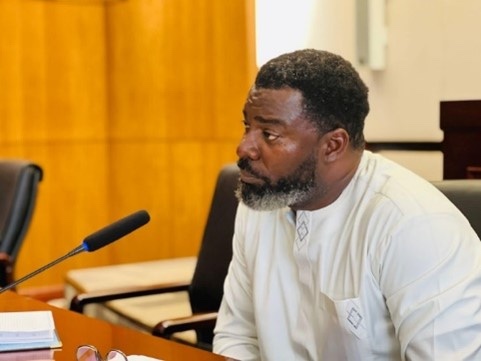
Liberia’s city Mayor-designate has come to town with blame, arguing that the Government’s failure to allocate funding has left the oldest West African city in flit.
By Lewis S Teh
Monrovia City Mayor-designate John Charuk Siafa says the filthiness of Monrovia is due to the government’s failure to allocate more funding to the municipal city government.
Mayor Siafa, appearing for a confirmation hearing before the Senate, told members of the committee that if Monrovia and its environs must have a decent facelift, adequate budgetary allocation is needed to enable the MCC to meet its mandate.
“Sustainable waste management,” he underscores, “needs proper fiscal support, which the Monrovia City Corporation lacks and contributes significantly to the city’s present waste management dilemma.”
The mayor is asking for US$4,430,586 in budgetary support from the National Government to ensure clean and effective city management, but he projects an actual overall budget of US$11,023,583.
He appeared for budget hearing Wednesday, calling for more financial allocation for effective and sustainable city management.
According to him, sustainable waste management needs proper fiscal support, which the Monrovia City Corporation lacks, and has contributed significantly to the present waste management dilemma in the capital.
He notes that in the fiscal year 2023 budget, the ceiling for GOL direct support to the cleanliness of Monrovia under the clean cities budget was US$600,000, with a drastic reduction of US$400,000 in the 2024 fiscal budget.
Mayor Siafa reveals that data collected by the MCC indicates that to clean Monrovia at 45%, the City Corporation needs a total of US$2.8 Million only for collection, disposal, and management of waste within the city limits.
He adds that the CLUS project budgetary allocation and payment under the Government of Liberia last fiscal year 2023 was US$750,000 rather than the required US$1.5 million support.
For fiscal year 2024, the ceiling projected for the CLUS project has declined immensely to US$500,000 instead of USD 1.5 Million due to the government’s commitment to the project, according to the mayor.
He laments that if the government can’t live up to its agreed US$1.5 Million commitment to the counterpart funding, which he considers an error, there would be an imminent possibility for the World Bank to close the CLUS project closure.
He says the Monrovia City Corporation requires US$11,023,583 for effective and proactive functionality, which could potentially close the city’s current funding gap and support its cleanliness efforts, thereby improving the capital’s overall waste management.
Mayor Siafa says the MCC would generate US$2,813,032 from internal income collection towards its budget, while national government should provide US$8,208,551 USD, which is a vital sum that will improve the corporation’s functions.
However, the Monrovia City Corporation has USD 3,777,965 in the 2024 draft national budget, far lower than its budget forecast to meet personnel and clean city efforts.
This indicates that the MCC needs an additional US$4,430,586 from the government and an internal income contribution of US$2,813,032 to equal its entire planned budget of US$11 021583.
The MCC’s approved budget for 2023 was US$4,654,415, with a $3777, 965 decrease in the proposed budget maximum for 2024, resulting in a difference of US$1,133,253 USD or 23%.
Mayor Siafa believes that without achieving the Monrovia City Corporation’s overall actual budget of 11,023,583 USD, the city authority will find it extremely difficult to address Monrovia’s waste management challenges, which does not bode well for the country and its people, given that Monrovia is the country’s capital.
He appeals to lawmakers to see a just reason to allocate much-needed resources to enable the Monrovia City Corporation to manage Monrovia’s waste.
Source New Dawn Newspaper















